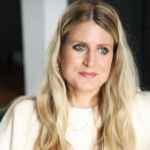With the cultish regimens that Silicon Valley leaders such as Twitter’s Jack Dorsey and other high powered business people claim to follow in order to be in peak performance during the day.
From living on four hours sleep to 5am ice baths - it is worth bearing in mind that these practices can create a wider culture where self-care goes out the window and people at all levels feel they must push their bodies to the limit in the name of performance/advancing their careers.
Here Rania Robinson, CEO of advertising agency Quiet Storm, explains why self-care should definitely fit into the daily routine of any and every CEO.
Vogue editor-in-chief Anna Wintour offers a guide to leadership in a new MasterClass video, which talks about empowering your team, knowing when you have to break the rules, being driven by your heart, and owning your own decisions.
So far I couldn’t agree more. But she loses me when she veers into old school, 80s style, Thatcher-era lessons on how to succeed: her routine involves waking up at 4am for a game of tennis, taking work home, immersing yourself in the news, and pursuing as many cultural activities as possible.
As a business owner, an early riser, and a mother, I understand the importance of pushing yourself, and how discipline drives success. I, too, exercise every morning – it clears my head and sets me up for the day – and I love culture and I like to keep up with the news, but I just call that living and I don’t do it competitively.
[ymal]
I share Twitter CEO Jack Dorsey’s habit of walking five miles to work, but there the similarities end: he eats only one meal a day, starts his morning with an ice bath, and uses a stand-up desk. It might work for a certain type of person, but I won’t be taking advice from the Jack Dorseys and Anna Wintours of this world, because I’m painfully aware that there are other aspects to a balanced and meaningful life.
As long as we define success as all about size and scale, then a single-minded, obsessive, controlling approach is probably necessary, but at what price? These practices can create a wider culture where self-care goes out the window and people at all levels feel they must push their bodies and minds to the limit in the name of advancing their careers. Or we lose talented people who can make a huge contribution, who simply aren’t willing to do it.
I’ve run Quiet Storm for seven years and we’ve had our ups and downs, but we make a good living, and I love what I do – but I also have a balance with my home and family life. Does that make me less successful?
When I was younger I would be up at 5am and work until midnight every day of the week (and that was for somebody else’s business), but now I remember to look after myself, to switch off and recoup and re-energise.
When I was younger I would be up at 5am and work until midnight every day of the week (and that was for somebody else’s business), but now I remember to look after myself, to switch off and recoup and re-energise.
Work was my life then but I’m much happier now as a person. Quiet Storm is probably having its busiest time ever – we have multiple pitches and productions on and are bedding in new clients – but I am still managing not to work at the weekends, with the very odd exception.
That excessive, brutal focus on work at the expense of everything else for me is not healthy and in my experience the quality of work suffers. Arianna Huffington built up an empire, but in the end, it cost her too much and she quit to launch a wellbeing and productivity platform, Thrive Global. She’s now an active advocate of a more balanced life.
Like Wintour and Huffington, I started out thinking that that you had to be aggressive and obsessive to get on, but I’ve redefined what it means to be a female leader because it wasn’t making me happy. All that control is really about managing your anxiety, but it doesn’t give you more peace of mind because ultimately, anything that interferes with it can send you over the edge.
A long term Harvard study demonstrates without a doubt that close relationships, not money or fame, are what keep people happy throughout their lives and Robert Waldinger’s TED Talk, ‘What makes a good life?’ also finds that relationships, not cholesterol levels, are the best predictors of health.
I’m at the high point of my career: I run my own successful business, I’ve helped build a top 100 agency – some might say I’m not as successful as some of my competitors but by my own measure I’m a success, and who is Anna Wintour to tell me otherwise?
Likewise, I wouldn’t dream of telling her she’s wrong: if that’s the level of success you want, you are going to have to make a lot of sacrifices, and it seems to be working for Wintour. But there’s no one-size-fits-all approach, and I’m personally inspired by more rounded individuals like Ariana Huffington or Sheryl Sandberg who also advocates a more balanced life. And I can’t help thinking that this generation of women, who are looking for more meaning and purpose in their lives will be seeking out a more rounded way to live and a much more fluid definition of success than Wintour represents.










